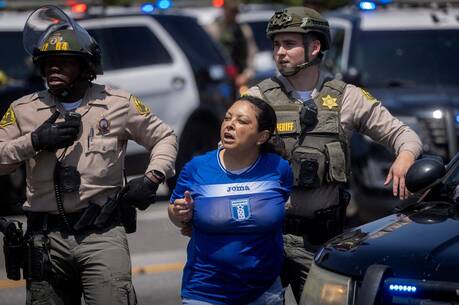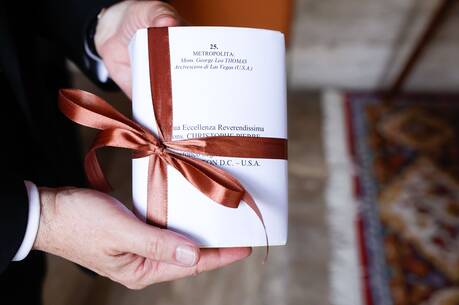Archbishop Silvio Tomasi, Permanent Representative of the Holy See to the United Nations and Other International Organizations in Geneva, speaking as a representative of The Holy See, issued the following statement today (Dec. 9) during the Vienna Conference on the Humanitarian Impact of Nuclear Weapons:
Nuclear weapons are a global problem. They affect not just nuclear-armed states, but other non-nuclear signatories of the Non-Proliferation Treaty, non-signatories, unacknowledged possessing states and allies under “the nuclear umbrella.” They impact future generations and the entire planet that is our home. The reduction of the nuclear threat and disarmament require a global ethic. Now more than ever the facts of technological and political interdependence cry out for an ethic of solidarity in which we work with one another for a less dangerous, morally responsible global future. The response that the international community gives will affect future generations and our planet.
We all know the risks of nuclear weapons, not least that of the instability they cause. Is it reasonable to think that the balance of terror is the best basis for the political, economic and cultural stability of our world?
The status quo is unsustainable and undesirable. If it is unthinkable to imagine a world where nuclear weapons are available to all, it is reasonable to imagine a world where nobody has them. Moreover, this is our reading of the letter and the spirit of the NPT.
Some positive steps have been made towards the goal of a world without nuclear weapons (NPT, CTBT, START, NEW START, etc.). The Holy See, however, still thinks that these steps are limited, insufficient, and frozen in space and time. The institutions that are supposed to find solutions and new instruments are deadlocked. The actual international context, including the relationship between nuclear weapons States themselves, does not lead to optimism.
The world faces enormous challenges (environmental problems, migration flows, military conflicts, extreme poverty, regular economic crises, etc.). Only cooperation and solidarity among nations is able to confront them. To continue investing in expensive weapon systems is paradoxical. In particular, to continue investing in the production and the modernization of nuclear weapons is not logical. Billions are wasted each year to develop and maintain stocks that will supposedly never be used. Can one justify such a high cost only for reasons of status?
The term national security often comes up in discussions on nuclear weapons. It seems that this concept is used in a partial and biased manner. All States have the right to national security. Why is it that the security of some can only be met with a particular type of weapon whereas other States must ensure their security without it? On the other hand, reducing the security of States, in practice, to its military dimension is artificial and simplistic. Socio-economic development, political participation, respect for fundamental human rights, strengthening the rule of law, cooperation and solidarity at the regional and international level, etc. are essential to the national security of States. Is it not urgent to revisit in a transparent manner, how States, especially nuclear weapons states, define their national security?
We are now witnessing a renewed awareness after two decades lost to the cause of nuclear disarmament. During the last decade of the Cold War, Churches, NGOs, academia, think tanks, and popular movements were committed to a world without nuclear weapons. The goal, the intentions and arguments remain valid even if the international context has changed.
The "humanitarian initiative" is a new hope to make decisive steps towards a world without nuclear weapons. The partnership between States, civil society, the ICRC, International Organizations, and the UN is an additional guarantee of inclusion, cooperation and solidarity. This is not an action of circumstance. This is a fundamental shift that meets a strong quest of a large number of the world’s populations which would be the first victims of a nuclear incident.
The Holy See, ever since the emergence of the nuclear era, advocates for the abolition of these weapons which are seemingly without any military logic. Since the Encyclical Pacem in Terris of John XXIII (1963), the Holy See continues to question the ethical basis to the so-called doctrine of nuclear deterrence. Ethical and humanitarian consequences of the possession and use of nuclear weapons are catastrophic and beyond the rational and reasonable.
This Delegation is aware that the goal of a world without nuclear weapons is not easy to achieve. For this, all energies and commitments are necessary. They are even more necessary in this time of international tensions. The role of churches and religious communities, civil society, academic institutions is vital to not let hope die, to not let cynicism and realpolitik take over. An ethics based on the threat and mutual assured destruction is not worthy for future generations. Only an ethic rooted in solidarity and peaceful coexistence is a great project for the future of humanity.







